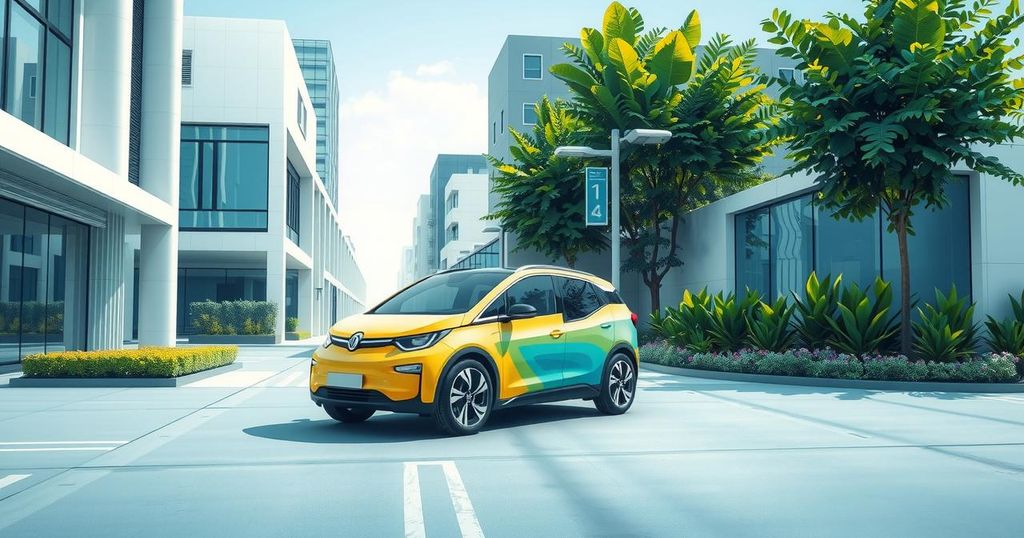China’s Electric Vehicle Revolution: A Leap Toward the Future
China is advancing its electric vehicle capabilities, particularly through NIO’s battery swap technology, allowing for battery exchanges in under a minute. This efficiency highlights the benefits of rapid EV adoption compared to traditional charging methods. NIO’s offerings, including subscription services and cost-effective purchasing options, present significant advancements in the EV market.
China is rapidly advancing in electric vehicle (EV) technology, showcasing what may appear as features of a future not yet realized in other parts of the world. Social media platforms, particularly TikTok, have showcased the seamless battery exchange process utilized by Chinese SUVs like the NIO ES6, which can swap its battery in less than a minute. This efficiency has garnered attention, making many automotive enthusiasts abroad reflective about the progress disparity in EV infrastructure.
The video currently trending depicts a NIO ES6 entering a battery exchange station, where its depleted battery is swapped for a fully charged one. The entire operation takes approximately one minute, demonstrating a stark contrast to the longer charging times associated with traditional electric vehicles. One observer noted, “Faster than fuelling gasoline,” highlighting a potential advantage for consumers.
NIO, founded in 2014 and publicly traded on the New York Stock Exchange, has established over 1,300 battery swap stations across China. Despite their availability, only certain NIO models, such as the ES6, are being marketed in regions like Australia, where battery swapping infrastructures are currently non-existent. NIO’s entry into the Australian market includes the anticipated launch of the more affordable ET5 model by year’s end, although its battery swapping capability may not be viable due to infrastructure limitations.
The company has employed innovative strategies to provide customers with flexible ownership options. In Europe, for instance, NIO introduced a subscription service allowing users to pay monthly for access to their vehicles, which can cost around $2,000. Furthermore, in China, customers can choose to purchase vehicles without a battery, significantly reducing costs, while subscribing to battery-swapping services for about ¥200 ($A40) monthly, thus facilitating more affordability and accessibility in EV ownership.
NIO’s ET5 model, equipped with a 75kWh battery, is priced from ¥328,000 ($A62,690) in China. Without a battery, the purchase price drops to roughly $49,000. The vehicle boasts impressive performance, reaching 100 kilometers per hour in 4.3 seconds and a claimed range of 550 kilometers, underscoring the company’s commitment to high-quality electric mobility solutions.
China’s advancements in electric vehicle technology, particularly the swift battery swapping capabilities offered by NIO, are setting new benchmarks in the automotive industry. As countries like Australia lag behind in establishing supportive infrastructures for battery swapping, China’s innovative approaches provide a glimpse into a more agile and economically viable future of EV ownership. The developments in China could potentially reshape global EV markets and inspire other nations to adapt their strategies accordingly.
Original Source: www.news.com.au




Post Comment